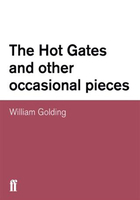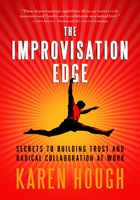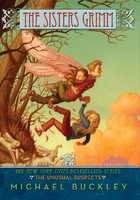Impia tortorum longos hic turba furores
Sanguinis innocui, non satiata, aluit.
Sospite nunc patria, fracto nunc funeris antro,
Mors ubi dira fuit vita salusque patent.
I was sick—sick unto death with that long agony; and when they at length unbound me, and I was permitted to sit, I felt that my senses were leaving me. The sentence—the dread sentence of death—was the last of distinct accentuation which reached my ears. After that, the sound of the inquisitorial voices seemed merged in one dreamy indeterminate hum. It conveyed to my soul the idea of revolution—perhaps from its association in fancy with the burr of a mill wheel. This only for a brief period; for presently I heard no more. Yet, for a while, I saw; but with how terrible an exaggeration! I saw the lips of the black-robed judges. They appeared to me white—whiter than the sheet upon which I trace these words—and thin even to grotesqueness; thin with the intensity of their expression of firmness—of immoveable resolution—of stern contempt of human torture. I saw that the decrees of what to me was Fate, were still issuing from those lips. I saw them writhe with a deadly locution. I saw them fashion the syllables of my name; and I shuddered because no sound succeeded. I saw, too, for a few moments of delirious horror, the soft and nearly imperceptible waving of the sable draperies which enwrapped the walls of the apartment. And then my vision fell upon the seven tall candles upon the table. At first they wore the aspect of charity, and seemed white and slender angels who would save me; but then, all at once, there came a most deadly nausea over my spirit, and I felt every fibre in my frame thrill as if I had touched the wire of a galvanic battery, while the angel forms became meaningless spectres, with heads of flame, and I saw that from them there would be no help. And then there stole into my fancy, like a rich musical note, the thought of what sweet rest there must be in the grave. The thought came gently and stealthily, and it seemed long before it attained full appreciation; but just as my spirit came at length properly to feel and entertain it, the figures of the judges vanished, as if magically, from before me; the tall candles sank into nothingness; their flames went out utterly; the blackness of darkness supervened; all sensations appeared swallowed up in a mad rushing descent as of the soul into Hades. Then silence, and stillness, night were the universe.
I had swooned; but still will not say that all of consciousness was lost. What of it there remained I will not attempt to define, or even to describe; yet all was not lost. In the deepest slumber—no! In delirium—no! In a swoon—no! In death—no! even in the grave all is not lost. Else there is no immortality for man. Arousing from the most profound of slumbers, we break the gossamer web of some dream. Yet in a second afterward, (so frail may that web have been) we remember not that we have dreamed. In the return to life from the swoon there are two stages; first, that of the sense of mental or spiritual; secondly, that of the sense of physical, existence. It seems probable that if, upon reaching the second stage, we could recall the impressions of the first, we should find these impressions eloquent in memories of the gulf beyond. And that gulf is—what? How at least shall we distinguish its shadows from those of the tomb? But if the impressions of what I have termed the first stage, are not, at will, recalled, yet, after long interval, do they not come unbidden, while we marvel whence they come? He who has never swooned, is not he who finds strange palaces and wildly familiar faces in coals that glow; is not he who beholds floating in mid-air the sad visions that the many may not view; is not he who ponders over the perfume of some novel flower—is not he whose brain grows bewildered with the meaning of some musical cadence which has never before arrested his attention.
Amid frequent and thoughtful endeavors to remember; amid earnest struggles to regather some token of the state of seeming nothingness into which my soul had lapsed, there have been moments when I have dreamed of success; there have been brief, very brief periods when I have conjured up remembrances which the lucid reason of a later epoch assures me could have had reference only to that condition of seeming unconsciousness. These shadows of memory tell, indistinctly, of tall figures that lifted and bore me in silence down—down—still down—till a hideous dizziness oppressed me at the mere idea of the interminableness of the descent. They tell also of a vague horror at my heart, on account of that heart's unnatural stillness. Then comes a sense of sudden motionlessness throughout all things; as if those who bore me (a ghastly train!) had outrun, in their descent, the limits of the limitless, and paused from the wearisomeness of their toil. After this I call to mind flatness and dampness; and then all is madness—the madness of a memory which busies itself among forbidden things.
Very suddenly there came back to my soul motion and sound—the tumultuous motion of the heart, and, in my ears, the sound of its beating. Then a pause in which all is blank. Then again sound, and motion, and touch—a tingling sensation pervading my frame. Then the mere consciousness of existence, without thought—a condition which lasted long. Then, very suddenly, thought, and shuddering terror, and earnest endeavor to comprehend my true state. Then a strong desire to lapse into insensibility. Then a rushing revival of soul and a successful effort to move. And now a full memory of the trial, of the judges, of the sable draperies, of the sentence, of the sickness, of the swoon. Then entire forgetfulness of all that followed; of all that a later day and much earnestness of endeavor have enabled me vaguely to recall.
So far, I had not opened my eyes. I felt that I lay upon my back, unbound. I reached out my hand, and it fell heavily upon something damp and hard. There I suffered it to remain for many minutes, while I strove to imagine where and what I could be. I longed, yet dared not to employ my vision. I dreaded the first glance at objects around me. It was not that I feared to look upon things horrible, but that I grew aghast lest there should be nothing to see. At length, with a wild desperation at heart, I quickly unclosed my eyes. My worst thoughts, then, were confirmed. The blackness of eternal night encompassed me. I struggled for breath. The intensity of the darkness seemed to oppress and stifle me. The atmosphere was intolerably close. I still lay quietly, and made effort to exercise my reason. I brought to mind the inquisitorial proceedings, and attempted from that point to deduce my real condition. The sentence had passed; and it appeared to me that a very long interval of time had since elapsed. Yet not for a moment did I suppose myself actually dead. Such a supposition, notwithstanding what we read in fiction, is altogether inconsistent with real existence;—but where and in what state was I? The condemned to death, I knew, perished usually at the autos-da-fe, and one of these had been held on the very night of the day of my trial. Had I been remanded to my dungeon, to await the next sacrifice, which would not take place for many months? This I at once saw could not be. Victims had been in immediate demand. Moreover, my dungeon, as well as all the condemned cells at Toledo, had stone floors, and light was not altogether excluded.
A fearful idea now suddenly drove the blood in torrents upon my heart, and for a brief period, I once more relapsed into insensibility. Upon recovering, I at once started to my feet, trembling convulsively in every fibre. I thrust my arms wildly above and around me in all directions. I felt nothing; yet dreaded to move a step, lest I should be impeded by the walls of a tomb. Perspiration burst from every pore, and stood in cold big beads upon my forehead. The agony of suspense grew at length intolerable, and I cautiously moved forward, with my arms extended, and my eyes straining from their sockets, in the hope of catching some faint ray of light. I proceeded for many paces; but still all was blackness and vacancy. I breathed more freely. It seemed evident that mine was not, at least, the most hideous of fates.
And now, as I still continued to step cautiously onward, there came thronging upon my recollection a thousand vague rumors of the horrors of Toledo. Of the dungeons there had been strange things narrated—fables I had always deemed them—but yet strange, and too ghastly to repeat, save in a whisper. Was I left to perish of starvation in this subterranean world of darkness; or what fate, perhaps even more fearful, awaited me? That the result would be death, and a death of more than customary bitterness, I knew too well the character of my judges to doubt. The mode and the hour were all that occupied or distracted me.
My outstretched hands at length encountered some solid obstruction. It was a wall, seemingly of stone masonry—very smooth, slimy, and cold. I followed it up; stepping with all the careful distrust with which certain antique narratives had inspired me. This process, however, afforded me no means of ascertaining the dimensions of my dungeon; as I might make its circuit, and return to the point whence I set out, without being aware of the fact; so perfectly uniform seemed the wall. I therefore sought the knife which had been in my pocket, when led into the inquisitorial chamber; but it was gone; my clothes had been exchanged for a wrapper of coarse serge. I had thought of forcing the blade in some minute crevice of the masonry, so as to identify my point of departure. The difficulty, nevertheless, was but trivial; although, in the disorder of my fancy, it seemed at first insuperable. I tore a part of the hem from the robe and placed the fragment at full length, and at right angles to the wall. In groping my way around the prison, I could not fail to encounter this rag upon completing the circuit. So, at least I thought: but I had not counted upon the extent of the dungeon, or upon my own weakness. The ground was moist and slippery. I staggered onward for some time, when I stumbled and fell. My excessive fatigue induced me to remain prostrate; and sleep soon overtook me as I lay.
Upon awaking, and stretching forth an arm, I found beside me a loaf and a pitcher with water. I was too much exhausted to reflect upon this circumstance, but ate and drank with avidity. Shortly afterward, I resumed my tour around the prison, and with much toil came at last upon the fragment of the serge. Up to the period when I fell I had counted fifty-two paces, and upon resuming my walk, I had counted forty-eight more;—when I arrived at the rag. There were in all, then, a hundred paces; and, admitting two paces to the yard, I presumed the dungeon to be fifty yards in circuit. I had met, however, with many angles in the wall, and thus I could form no guess at the shape of the vault; for vault I could not help supposing it to be.















